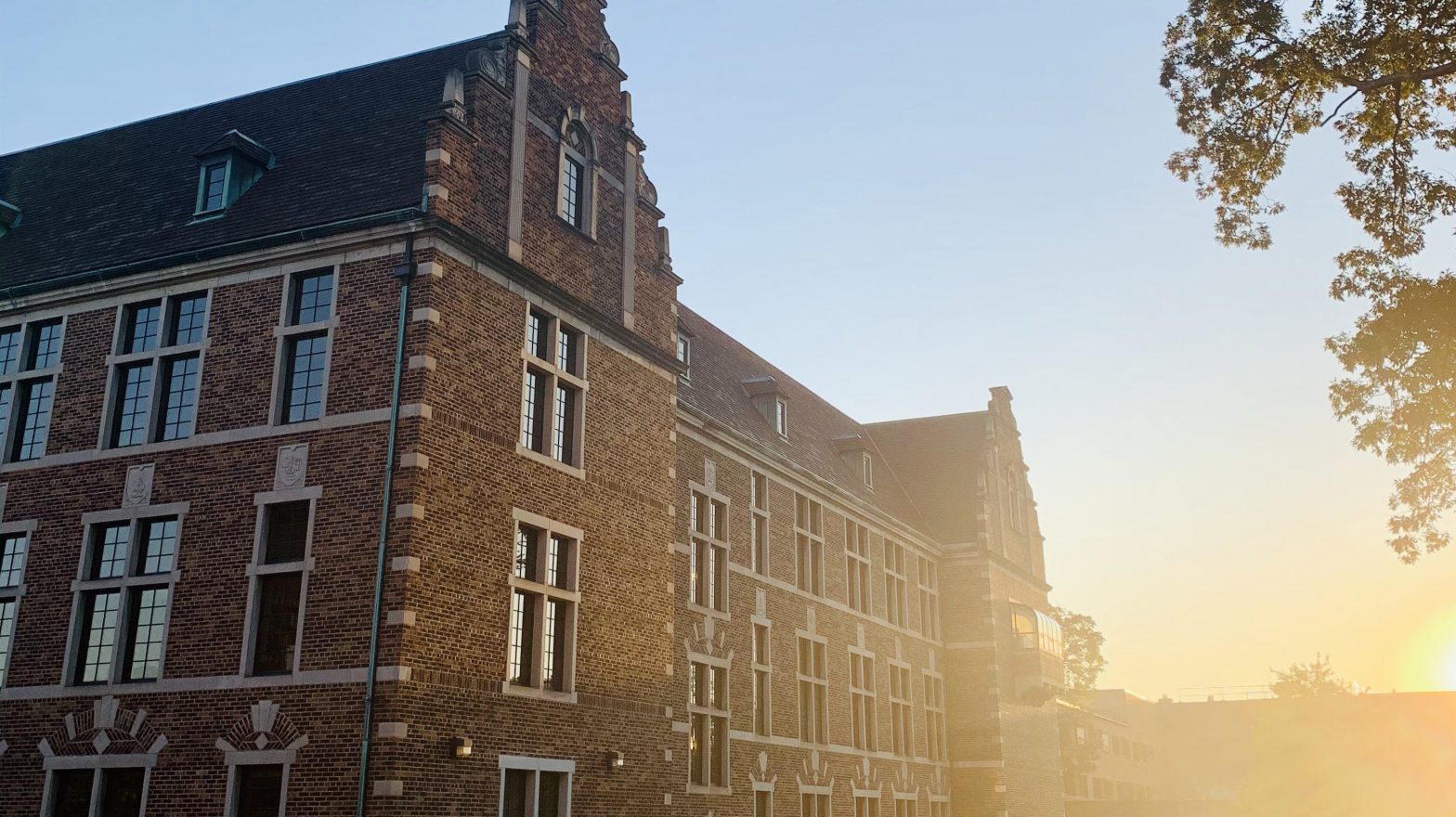Not sure which History classes to take in the Spring? Our upper-level courses are available below for your perusing! If you have questions about them, please contact Dr. Jeanne Petit (petit@hope.edu).
History 141-01 A The Historian’s Vocation (2 Credits)
MWF 12:00 -12:50 PM | Janis Gibbs
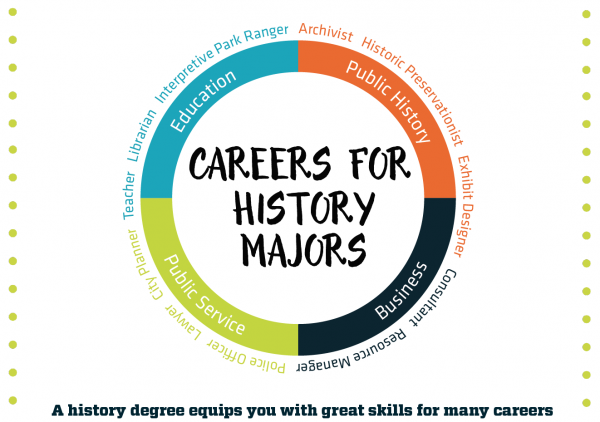
Do you love history, but struggle to answer when people ask you, “What are you going to do with that history major (or minor)?” In this course, we will examine the ways the study of history can become the foundation of your larger vocations in life, whether in a career or as a civically-engaged member of your community. We will consider how the skills you will develop as a historian (reading critically, researching widely, writing effectively) provide a foundation for a variety of careers, as well as for a life of meaning and purpose. As part of this course, students will work with the Boerigter Center for Calling and Career, learn practical skills, such as how to write a resume, and develop a plan for pursuing experiential learning opportunities that will aid in vocational exploration and discernment.
This course is required for all history majors and minors who entered Hope College in the Fall of 2018 and later.
Pre-requisite: HIST 140 (can be taken in the same semester)
History 200 01A: Ovid’s Metamorphoses (2 Credits)
R 6:30 – 9:20 PM |Albert Bell
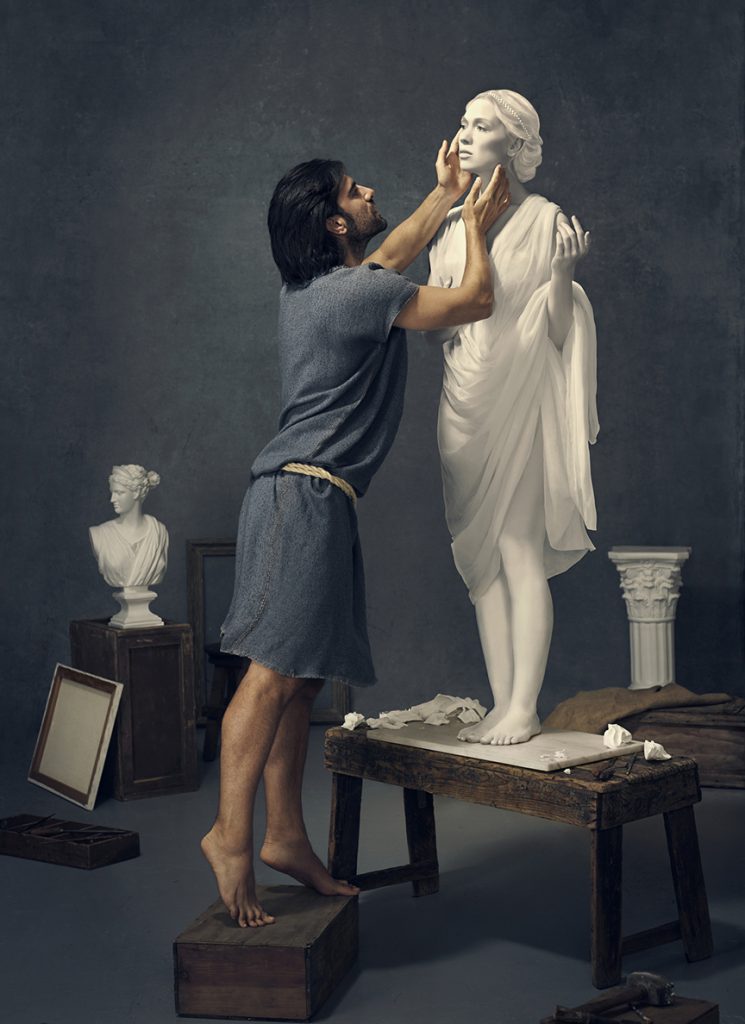
Ovid’s Metamorphoses are the source for many of the myths familiar to us from antiquity, such as Pyramis and Thisbe (the inspiration for Romeo and Juliet) and Pygmalion and Galatea (the inspiration for My Fair Lady). But Ovid ran into trouble. The emperor Augustus disliked the tone of his poetry so much he sent him into exile. This course will read selections from the poem and examine Ovid’s troubled life.
History 200 01B: Cosimo, The Renaissance Man (2 Credits)
R 6:30 – 9:20 PM | Albert Bell
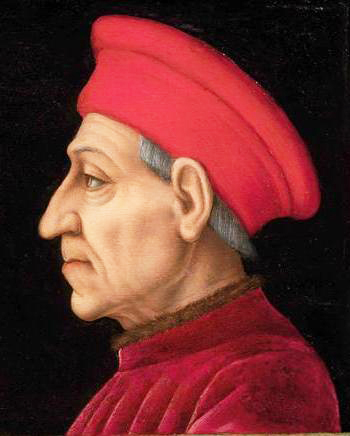
Cosimo de Medici dominated the city of Florence for the first half of the 15th century without ever being elected or appointed to an office. Using wealth acquired from his bank, he hand-picked people who were chosen for office. He also hired artists to decorate the city and his home. But he lived in the terror of going to hell when he died because he was so rich and, according to Jesus, rich men could not get into heaven. Cosimo’s efforts to buy his way out of hell created the Italian Renaissance.
History 255 01: World War I America (GLD)
MWF 9:30 – 10:20 AM |Jeanne Petit
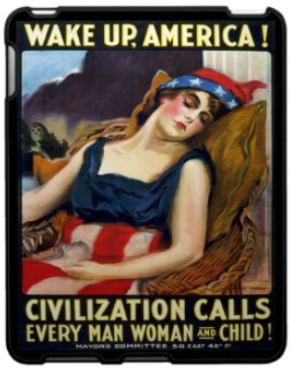
This course will examine how World War I changed the United States politically, socially, culturally, and economically. We will focus on the war’s impact in many areas, including industrialization, unionization, urbanization, the environmental movement, progressive politics, the freedom struggle of African Americans, women’s suffrage, immigration, the Red Scare, and the cultural transformations of “the Roaring Twenties.”
Flagged for domestic global learning.
History 268 01: Glory & Decadence: Russian History from Peter the Great to the USSR (GLI)
MW 1:00-1:50 PM |Wayne Tan
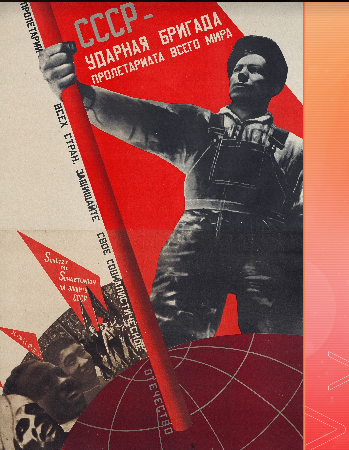
Russia is, arguably, one of the most influential nations today on the global stage. With humble beginnings as fragmented principalities, it grew into a vast empire spanning Asia and Europe by the 19th century and, as the core of the Soviet Union, dominated world politics for much of the 20th century. A land of untold riches, it was also a land of enigmas and contradictions. What is Russia’s identity today? What are the origins of Russian imperial traditions and institutions? How did its literature convey the political anxieties of the centuries? How did the 1917 Revolution affect the rest of the world? Why did the Soviet Union emerge and then slowly unravel? What lessons does the story of Russia hold for the future of global diplomacy and conflict resolution? This course explores these questions by surveying Russian history from the time of Peter the Great to the dissolution of the Soviet Union and recent developments in the 21st century.
This course is flagged for global learning international & fufills the regional requirement of the History major.
History 341 01: World War II: Collaboration and Resistance (GLI)
MWF 11:00-11:50 PM | Gloria Tseng
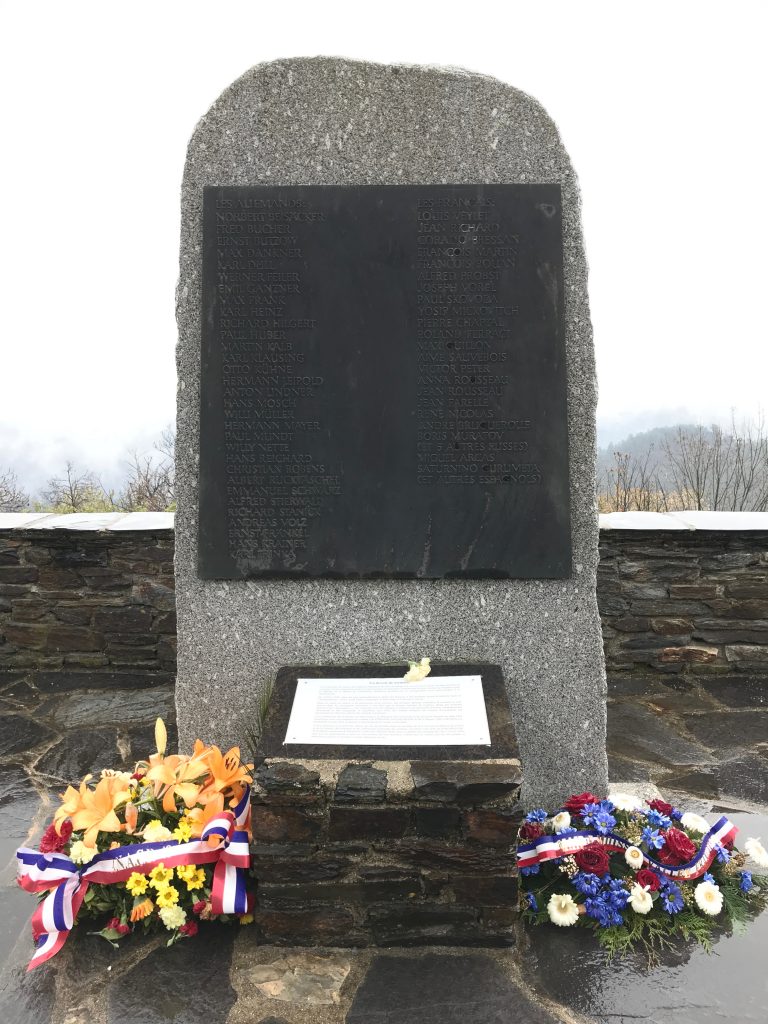
This course aims to explore one specific dimension of twentieth-century history, namely, how societies and individuals faced the moral ambiguities caused by the Second World War. Our goal is to learn about the significant events of the Second World War as it unfolded in different parts of the world. But more importantly, we will examine several noteworthy individuals and the specific circumstance in which they made significant moral choices and acted for good or for ill. It is the instructor’s hope that each person in the course will be challenged to consider what it means to act ethically in situations that require discernment and courage.
History 351 01: Slavery and Race in American (GLI)
MWF 3:00 – 4:20 PM | Fred Johnson
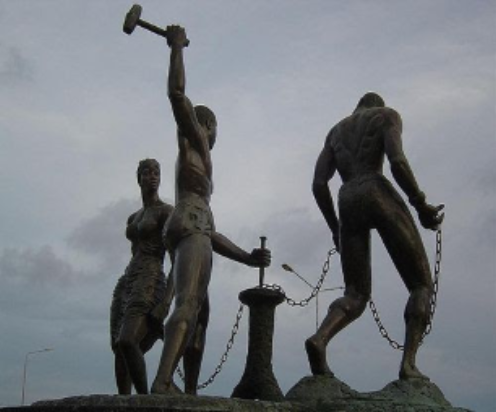
From its origins as a British colonial society to its dominance as a global superpower, the United States has struggled to resolve conflicts arising from issues of race, ethnicity, and immigration. This course examines how such factors have influenced the overall development of the United States while exploring strategies for reconciling those and related challenges confronting Americans in the 21st century.
History 370 01: Modern Middle East (GLI)
MWF 2:00-2:50 PM | Janis Gibbs
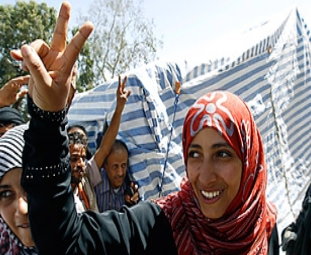
To understand what is going on in the Middle East today, it is crucial that we understand its history. In this course, we will survey the social, political, religious, geographic, and economic history of the Middle East, broadly defined to include the regions of North Africa and Iran, as well as the core lands of the Middle East, from Turkey through the eastern Mediterranean to the Arabian Peninsula and Egypt. Most of our attention will be devoted to the modern period—that is, the period between the 19th century and the present. To understand the context of the history of the modern Middle East, we’ll spend the first few weeks considering the rise of Islam and some of the facets of the history of the earlier Middle East that influence the region today.
Flagged for Global Learning.
Don’t forget! Dr. Lauren Janes is leading the 2020 Paris May Term: Art, History, & Global Citizenship.
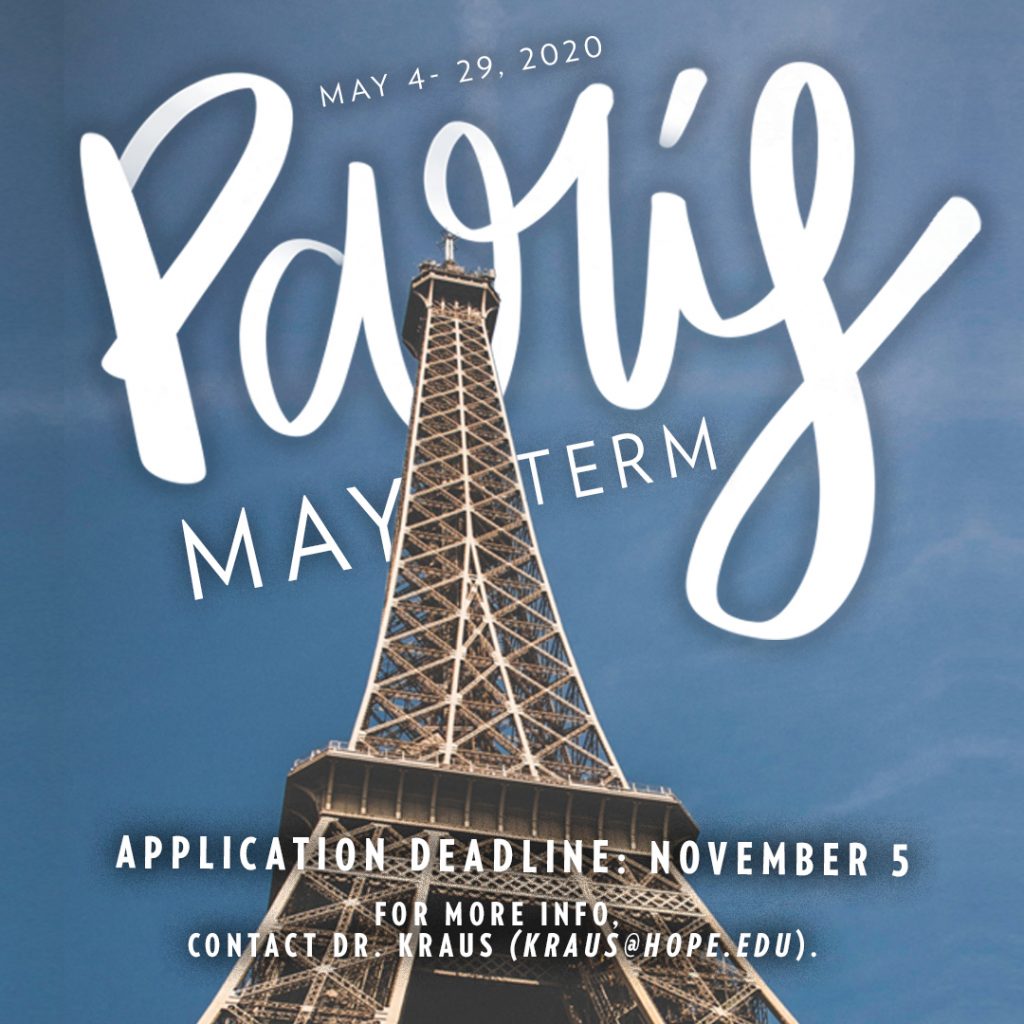
This is a Grand Challenges Initiative Pathways course. This qualifies as HIST 131 (CHII), HIST295 (Europe Since 1500), Art 111 (FA1), or Senior Seminar. Contact Dr. Janes at janes@hope.edu to apply.


